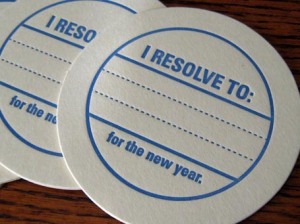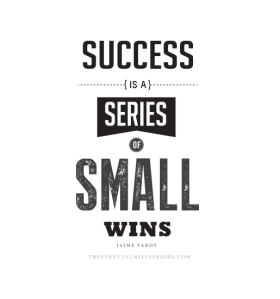As you’re reading this I hope this finds you well. How was your Canada Day? I hope it was relaxing. This day means a lot of things to many different people but for me besides getting a chance to kick back and celebrate the birthday of one of the greatest countries on earth, I like to remind myself how wonderful it is to be in a country where anyone with a dream and a product or service that people need and can afford can compete in the free enterprise system.
This week I want to address an issue I’ve heard leading up to this holiday which is the question of time. I’ve heard this so many times: “but I don’t have time for that”. While it’s true that time is limited, time is our most precious and limited resource, when I start talking to people about why they don’t have enough time, the picture becomes a little clearer as to how they could take their power back and really clean their calendar. I’m going to share with you some of my real time-saving strategies, because ultimately if it’s not on your calendar and if it’s not a routine or a ritual in your life, it will not come into fruition. Whatever you want to create, whether it’s an incredible healthy body or a successful business or whatever it might be – whatever you want to create requires time to be scheduled in your calendar and requires you to actually show up!
If your calendar is full of all kinds of other stuff from other people you’re never going to find time for you, and unfortunately you’re just going to slide into a mediocre boring life. You will become so resentful that you either just resign and say that’s just the way life is, or you get fired up and you hit a bottom and you say I’m never going to let this happen again. Maybe you’re at that place where you’re feeling frustrated that you want to do that creative project or work on your exercise and diet but just don’t have the time. If your ambition is to become successful, time shrinks the more successful you become. I found I had more time when just getting started than I do now with all these pressures and different deadlines. The key is to get your time and calendar right, and here’s how you got to do it. It’s very simple:
Learn to say NO: That’s the word you want to learn. No is how you detox your calendar, because if you look at your calendar and all the time that you’re spending with other people or on projects that you don’t want to be on, you would probably be shocked. Or if you’re honest, how much time are you spending on Netflix, HBO, twitter, Instagram, Facebook, doing things where you just let time pass by? People ask me all the time, how do you manage all those companies and still find time to travel, golf, give back to students and young entrepreneurs? It’s because I’ve become really good at saying the word no to distractions. When you have a hard time saying no, there’s usually two emotional issues. The first one is being okay with letting people down from time to time. You can do this without being out of integrity by being in communication with that person and re-negotiating the timing of when you can be present with them. The other emotional issue is when you create time to work on your projects, usually you’ve been spending so much time focusing on other people that there’s usually unfelt negative emotions inside you that you’ve been running from such as fear, guilt, or anger. We got to work on those emotions, because ultimately if you want to work on yourself and really take your business to the next level, exercise and take your body to the next level, or take your relationship to the next level, you’re going to have to work on yourself.
When you clear your calendar, all those emotions are going to well up, mainly the emotion of fear. Fear of whether it’s going to work out or fear if whether you’re good enough. Then we get to the real issue, which is not time, but rather the negative emotions and fear. How well you manage unfelt negative emotions and fear will determine the quality of your life. If you want to detox your calendar, believe in yourself and develop a daily ritual or a behavior every single day that leans you in the direction of getting all of your goals met.
For me, I need to read and do yoga or work on my body every single day. I always struggled with the time to do both with all the pre bedtime routines so I found that I can perform some stretches while reading every night before I go to sleep. It gives me time to distress and tune out all the distractions before bed so I can have a sound sleep and be recharged for what always seems to be a powerful day. You want to set yourself up so that you can actually do the behaviors and the rituals that make you the most fulfilled.
With that said, that would be my advice for you this week. Really take your calendar back to get the business results you want, the body you want, the relationship you want and ultimately the life you want.
Yours,
Frank.

 This past weekend was the annual Wish Group Kickoff event, where we meet up with all of our employees to discuss what we accomplished in 2014, where we met our goals and, more importantly, where we didn’t meet our goals. I truly believe that in order to move forward, you need to take an honest look at your shortcomings and use those to get a better understanding of where you need to improve.
This past weekend was the annual Wish Group Kickoff event, where we meet up with all of our employees to discuss what we accomplished in 2014, where we met our goals and, more importantly, where we didn’t meet our goals. I truly believe that in order to move forward, you need to take an honest look at your shortcomings and use those to get a better understanding of where you need to improve. Let’s be serious – there is no doubt going to be an overabundance in blog posts detailing the importance of setting resolutions for the new year. Be it lose weight, get a promotion, go traveling or anything in between, resolutions are something that most of us set at this time of year.
Let’s be serious – there is no doubt going to be an overabundance in blog posts detailing the importance of setting resolutions for the new year. Be it lose weight, get a promotion, go traveling or anything in between, resolutions are something that most of us set at this time of year. When you’re selling to potential customers, I sincerely hope you’re not taking a “one night stand” approach with them, for lack of a better term. As always, this was a point I touched on in my last blog post that I really want to elaborate on. No one wants to be sold to, which shouldn’t be a surprise to people anymore. The question then, is how do you sell to people without selling to them? The answer is to build a potentially long lasting relationship with them.
When you’re selling to potential customers, I sincerely hope you’re not taking a “one night stand” approach with them, for lack of a better term. As always, this was a point I touched on in my last blog post that I really want to elaborate on. No one wants to be sold to, which shouldn’t be a surprise to people anymore. The question then, is how do you sell to people without selling to them? The answer is to build a potentially long lasting relationship with them. 24 hours in a day – to some people it seems like that’s never enough to accomplish anything, but then there are the people who seem like they can get everything done in that time, plus still have time for their family, friends and a million other personal tasks. Your gut reaction might be to be envious of these people, but it’s not as if they’re cheating and getting an extra hour from somewhere. We ALL have 24 hours to make the most out of, which means that it really just comes down to time management.
24 hours in a day – to some people it seems like that’s never enough to accomplish anything, but then there are the people who seem like they can get everything done in that time, plus still have time for their family, friends and a million other personal tasks. Your gut reaction might be to be envious of these people, but it’s not as if they’re cheating and getting an extra hour from somewhere. We ALL have 24 hours to make the most out of, which means that it really just comes down to time management. In my blog post
In my blog post  When was the last time that you asked yourself if you love what you do? You might immediately give yourself an enthusiastic “yes”, while at the same time find yourself struggling to go into the office every morning. When you love what you do, others will take note and your passion will inspire and motivate them. You can easily spot businesses that are passionate about their craft. Their care and effort shows up in their work, which excites people to work with them.
When was the last time that you asked yourself if you love what you do? You might immediately give yourself an enthusiastic “yes”, while at the same time find yourself struggling to go into the office every morning. When you love what you do, others will take note and your passion will inspire and motivate them. You can easily spot businesses that are passionate about their craft. Their care and effort shows up in their work, which excites people to work with them.